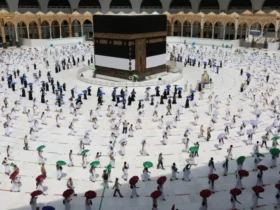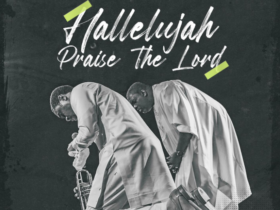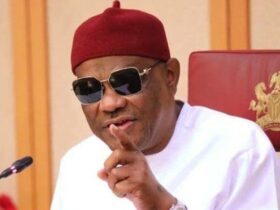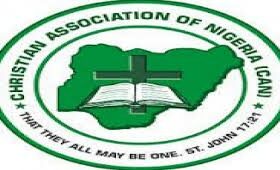Since the inception of the agency, 8,043 arrests have been made. But, since September 2021, we have made 471 arrests; 263 of them were males and 208 females.
How true are reports that some clerics are involved in human trafficking?
There have been instances of human trafficking reported to the agency where clerics were involved in this crime. For example, under the guise of education, some clerics exploit the Almajirai through child labour or forced street begging. We have had several such cases. The most recent was in December 2021, when 37 victims of child trafficking were rescued by the Kogi State Command of the Nigeria Police from a remote village under the harsh conditions of forced labour and the victims were sent to NAPTIP. The children were from different northern states and the Republic of Niger. The suspect collected the children under the pretence of taking them to a Qur’anic school, but they all ended up in forced labour and working as domestic slaves.
How many convictions have been recorded since your appointment?
So far, the agency has secured 511 convictions to date. In the last eight months, the agency has secured 24 convictions involving 18 males and six females. We have 261 ongoing cases in various courts across the country and 11 ongoing mutual legal assistance cases. Out of the 11, two cases are currently being prosecuted in court.
Which of the human trafficking cases gave you the most concern and why?
There was a recent case of trafficking where a suspect trafficked her own sister to North Africa and it was alleged that she trafficked her sister for organ harvesting. Unfortunately, the victim passed away. She was 18 or 19 years old. Of course, we didn’t know for certain if the young girl was trafficked for organ trafficking except, of course, an autopsy is conducted but these allegations were made by the victim’s family members. Now, this case gives me grave concerns for two reasons: victims of trafficking are often lured by people they trust and what this means is that no one is safe; also, there is a growing concern of human trafficking for organ harvesting because of the global shortage of human organs for ethical transplant. The risk is further aggravated because there is a lot of misinformation and disinformation over there regarding organ trafficking and victim-donors are often tricked into selling their organs.
Is it then true that some parents and family members encourage trafficking? What do they say is their motive?
Oh, yes! This is indeed very accurate. From our records, victims of trafficking are often trafficked by people they know and trust, including family members and friends. There are also communities that condone it. To collaborate on this, a 2022 research finding by the Child Move Project reveals that encouragement may be given directly or indirectly. Directly is when the family, because of living conditions or perceived economic opportunities, actively encourages or permits their wards to be trafficked. There are some, who are passively involved, meaning that they are not aware that their wards will be trafficked, but after they found out they had been trafficked, maybe with a madam to prostitute in Europe, they do not make any moves to report the cases, repatriate or rescue their wards. Indirectly is when people, out of ignorance, allow their children to be trafficked, or procure another to be trafficked without understanding what it involves. Someone could come and tell them, ‘You have the opportunity to live a better life. Let me take your daughter to Europe’, and they just instantly buy into the idea. Many of them don’t even bother to keep in touch with their child or ward as long as they get financial returns.
How is the agency dealing with what has been described as international trafficking cartels?
The agency recognises the fact that human trafficking is a multi-billion-dollar global industry and second among transnational organised crimes that exact high human costs and, that trafficking exists because the crime is one that currently has opportunities for high profit with very little risk, which is why the agency has a dedicated unit called the intelligence and international cooperation unit, which is focused on building partnerships and enhancing cooperation, collaboration and intelligence sharing with other countries. Because of the trans-border nature of the crime of human trafficking and to be able to effectively disrupt the activities of these international cartels, through investigation and prosecution, we need to work closely with other countries, which is what NAPTIP is doing through a platform curated by NAPTIP called the Embassy Liaison Meeting.
In addition to prosecution, we are focusing on asset recovery gained by these cartels. Securing convictions is only half of the equation in disrupting the business of trafficking. Funds that fuel crime must be taken back to help those who are at risk. To enhance regional cooperation, between October and December 2021, Nigeria signed bilateral agreements to prevent and suppress trafficking in persons, especially women and children, with the Republic of Ivory Coast and Burkina Faso, and a memorandum of understanding with the Republic of Niger. We are scheduled to sign another bilateral agreement with The Gambia in June and we are finalising a memorandum of understanding with South Africa. These partnerships have proven valuable in supporting Nigeria’s efforts to succeed.
Criminals find a way to infiltrate law enforcement agencies and recruit internal collaborators. How is NAPTIP handling this challenge?
The agency is aware of this and has put mechanisms in place to check that. We have zero-tolerance for saboteurs and once an officer is deemed to be compromised, the public service rules will immediately be activated, and the public service rules contain copious provisions regarding these kinds of behaviour. We also have a whistle-blowing policy, which is managed by the reforms unit, so that reports can be sent in anonymously. For officers who blow the whistle, strict confidentiality is ensured, and the person is protected. In addition to the public service rules, NAPTIP has its own internal code of conduct.
Has the agency had reasons to enforce discipline among its personnel found collaborating with traffickers through arrests, dismissals, prosecution and conviction?
Yes, it has.
How many?
Seven were dismissed and one was convicted.
There have been recent cases of human trafficking reported in the media, despite the arrests and convictions recorded by the agency. What do you think is responsible for that?
Human trafficking, just like drug trafficking and money laundering, is a transnational crime with many layers. Due to the transnational nature of human trafficking, the crime may have occurred over a period and across different jurisdictions, with some key culprits or victims and witnesses spread across various jurisdictions. Human trafficking is the recruitment, transportation, transfer, harbouring, or receipt of persons by means of threat, force, abduction, or fraud for the purpose of exploitation. From the definition, you can see that it’s an entire value chain with different people playing different roles. Just as we are constantly on the trail of traffickers and disrupting their businesses, they also are busy refining their mode of operation. It is a crime that mutates, throwing up new trends and challenges.
What has been the relationship between the agency and traditional rulers in states most affected by human trafficking?
Our relationship with traditional rulers has been cordial and we continue to collaborate with them through community-based advocacy and awareness campaigns. The role that traditional rulers play in tackling social issues because of their influence in society as custodians of cultural norms and values, cannot be overstated. As traditional rulers, they are fundamental allies in ending all forms of human trafficking in Nigeria. With their extraordinary authority, traditional rulers can influence thinking, foster dialogue and set priorities for members of their communities and advocate social change. While the government of Nigeria, through NAPTIP, remains committed to curbing incidences of human trafficking, most of the efforts will occur at the grassroots level because grassroots initiatives can best respond with a culturally sensitive approach. Some years back, in 2018, I believe, when the Oba of Benin placed a curse on perpetrators of human trafficking in Edo State and native doctors, who administer the oath of secrecy on victims, it sent a strong message across the state and victims of trafficking started cooperating with the agency in going after traffickers. We need more allies and champions like the Oba of Benin.
Which states are the most affected and what efforts have been made to reduce the problem through collaboration?
Human trafficking in Nigeria is not a problem, but a national crisis as the volume is enormous and widespread. So, to answer your question, no state is immune to it as each state has its own peculiarity. Now, the risk of wanting to identify a state that is most affected is the assumption that other states do not need to adequately put in place preventive measures or improve responses to the threat of trafficking. There are national implications, whether for the states of origin, transit, or destination. So, just because incidents of trafficking majorly occur in one state, it may be that the devastating effect of the act is felt more in another state.
As for collaboration at the state level, NAPTIP is working assiduously to give effect to the decision of the 45th National Economic Council meeting, which was held on January 24, 2013, that states should support NAPTIP’s activities in order to strengthen the national response to human trafficking at the sub-national levels, which is why NAPTIP is collaborating with state governments to set up a task force against human trafficking under the supervision of state governors to consolidate the efforts of the agency and other stakeholders. We have inaugurated task forces against human trafficking in 20 states. The latest was in Kaduna State, inaugurated in December 2021. The task forces are co-chaired by the state attorneys-general and commissioners for justice and NAPTIP.
What are the other major challenges NAPTIP is grappling with in its operations?
In terms of challenges, the ever-evolving nature of trafficking in persons remains a challenge, for instance, with COVID-19, there was a shift from physical recruitment to virtual recruitment with an increase in fake online job advertorials and fake scholarships. In fact, there is a new trend of human trafficking called Q-Link or Q-Net, whereby young boys and men are trafficked to carry out online scams and this trend is predominant in Ghana, Liberia and Sierra Leone, for now.
There is the issue of paucity of resources required for consistent research, intensified capacity building, and massive public awareness campaigns. Also, the relationship between suspects and victims poses a challenge to effective investigation and prosecution as victims are unwilling to testify against their traffickers since they are sometimes relatives or friends, and this seriously hampers our prosecutorial efforts and conviction rates. Some elements that create vulnerability to human trafficking are culturally accepted as a way of life, for instance, child labour and domestic servitude.
Furthermore, there is a lack of cooperation from the source or vulnerable communities which, because of ignorance, believe the traffickers are helping and should, therefore, be protected from NAPTIP. As a result of the renewed visibility of the agency, a new challenge has also emerged; people cry wolf to get urgent assistance from the agency, putting a lot of strain on the agency’s resources. Insecurity is a challenge and hampers the agency’s work in terms of operations, sensitisation, rescue and assistance.
You are an associate professor of Law and have a special interest in anti-corruption and women’s rights. What sparked your interest in Law?
What sparked my interest is the early recognition that the law can be used as an instrument for change. I had a strong sense of equity, justice and fairness whilst growing up and was always advocating the rights of others, even as a young girl. I grew up in a home where my voice was important and I wielded a lot of power being the youngest. It only seemed natural that I would gravitate towards Law.
If not Law, would it have been something else?
Hmm! Probably a video game developer.
Some lawyers and human rights advocates connect their passion to their childhood experiences or rights abuse. Is that the same for you?
No. That’s not my story. But of course, I grew up hearing and seeing it happen to others.
You are a member of the New York County Lawyers Association and an associate member, Chartered Institute of Arbitrators in the United Kingdom. What took you outside the shores of Nigeria? Study, work, or a combination of these?
It was a combination of studies and work. I acquired my Master’s in Law and a doctorate in Law from the United States. I also had the opportunity to work in the United States as well. I have amazing memories from my years living in the United States. I consider the States my second home.
You have recorded commendable achievements at a young age. What do you consider as your motivation?
My motivation is the drive to achieve, break barriers and change the narrative.
What are your hobbies?
I like to take long walks and play video games.
How do you relax when you are not working?
I mediate, listen to delightful music and mind my business.









Leave a Reply